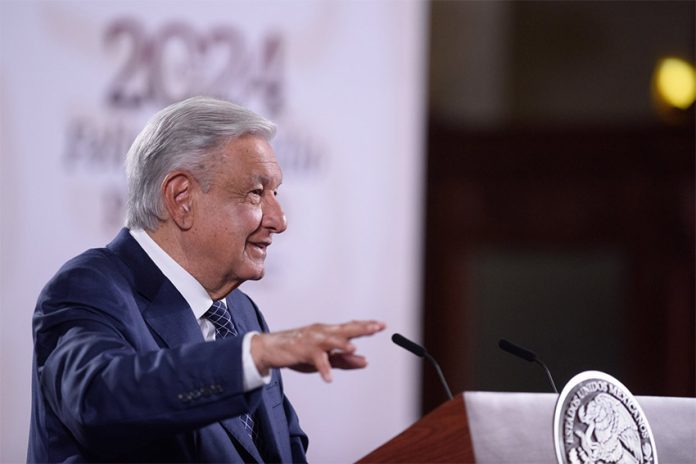President Andrés Manuel López Obrador claimed on Thursday that the United States government is partly to blame for the wave of cartel violence that has claimed more than 40 lives in Sinaloa in the past two weeks.
Asked at his morning press conference whether the U.S. was in any way “jointly responsible” for the violence stemming from fighting between the “Los Mayos” and “Los Chapitos” factions of the Sinaloa Cartel, López Obrador gave an unequivocal response.
“Yes, of course, yes,” he said.
López Obrador asserted that the United States shares blame for the eruption of violence in and around Culiacán because it carried out the “operation” that resulted in the arrest of alleged Sinaloa Cartel leader Ismael “El Mayo” Zambada García in the U.S. on July 25.
By “operation” he apparently meant a negotiation with another alleged Sinaloa Cartel leader, Joaquín Guzmán López, that he believes resulted in the delivery of Zambada to U.S. law enforcement authorities at an airport near El Paso, Texas.
While Los Mayos and Los Chapitos have been fighting each other for years, the main cause of their current conflict is the alleged kidnapping of El Mayo.
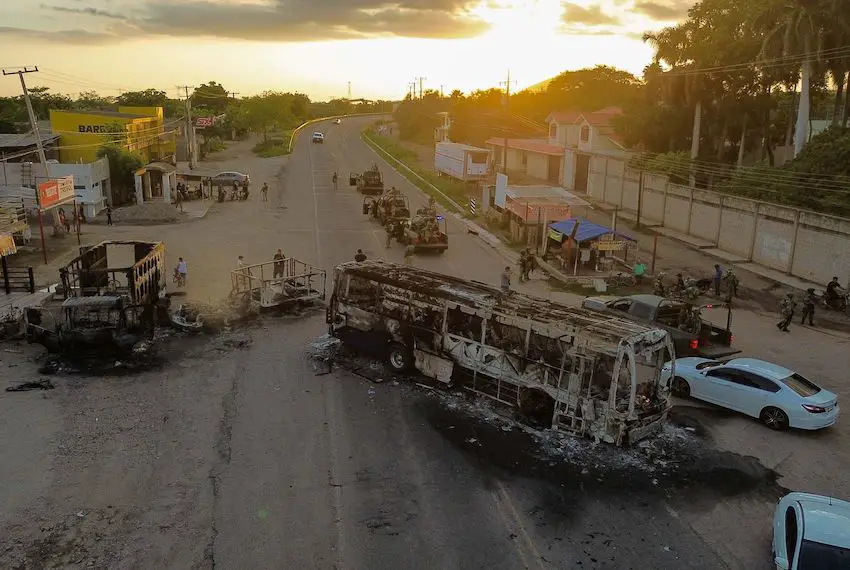
The U.S. government has denied any involvement in the capture of Zambada, who alleges he was abducted and forced onto a U.S.-bound plane by Guzmán López, one of Los Chapitos, as the sons of convicted drug trafficker Joaquín “El Chapo” Guzmán Loera are known.
Nevertheless, López Obrador declared that the United States government needs to “internalize” that it “can’t act like that, without taking the government of Mexico into account.”
“In other words, there can’t be a relationship of cooperation when unilateral measures are taken. That can’t be accepted,” he said.
The president charged that there was an agreement between Guzmán López and U.S. authorities, and “due to that agreement … the confrontation that is occurring was caused.”
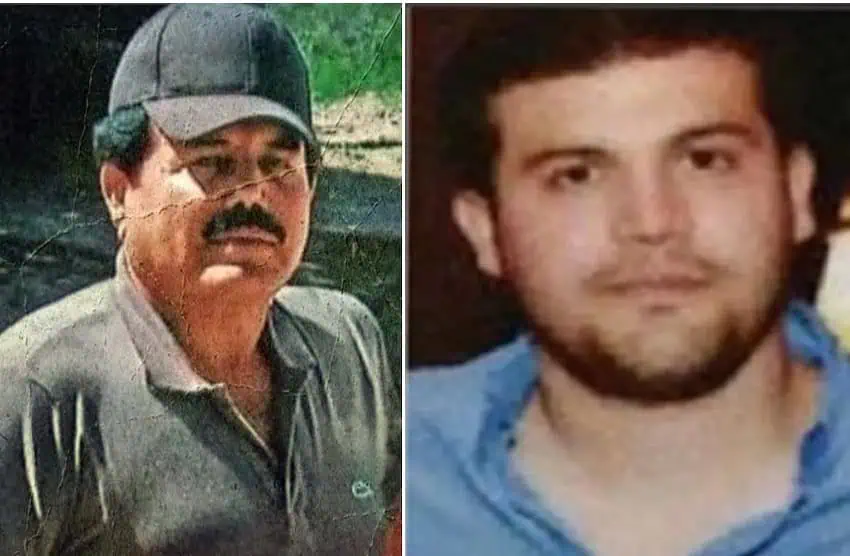
He said that Mexican authorities still didn’t know the details of the alleged agreement, despite their calls for transparency from their U.S. counterparts.
Jeffrey Lichtman, Guzmán López’s lawyer, said in late July that his client didn’t have any deal with U.S. authorities.
However, López Obrador said that “according to the Federal Attorney General’s Office [FGR], the [U.S.] Department of Justice conducted talks with one of the crime groups in Sinaloa and they had agreements.”
“They even released or gave a different status to one of the prisoners in the United States at the same time that another person was taken [to the U.S.],” he said.
That remark was apparently a reference to reports that Ovidio Guzmán López, another of Los Chapitos, has entered the United States Federal Witness Protection Program.
Publicly available records of the U.S. Federal Bureau of Prisons showed that Ovidio was released from prison on July 23 — two days before the arrest of his brother and Zambada — but United States Ambassador to Mexico Ken Salazar has said on repeated occasions that Ovidio remains in U.S. custody.
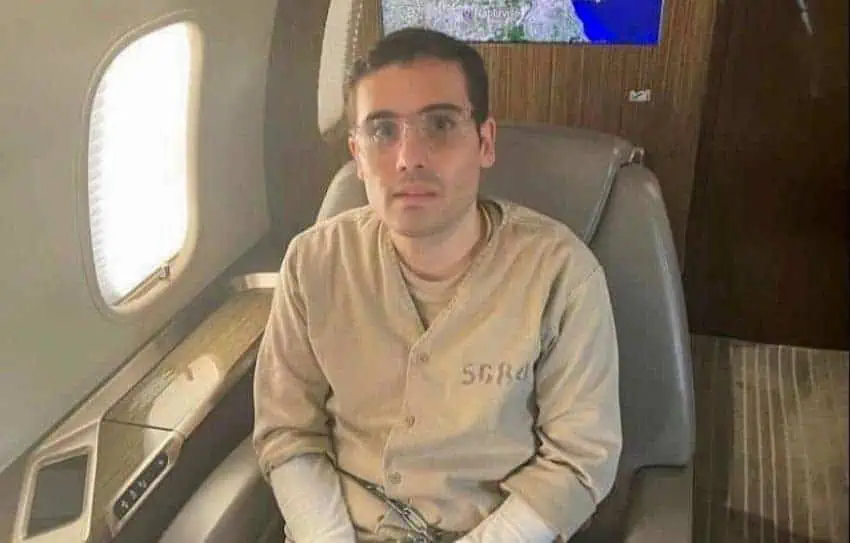
On Thursday, López Obrador insinuated that Ovidio — who was captured in Culiacán in early 2023 and extradited to the United States a year ago — is receiving preferential treatment from the U.S. authorities because his brother facilitated the arrest of Zambada for them.
“That requires an explanation because we’re now facing a situation of instability, of confrontation in Sinaloa,” he said.
“It’s due to them taking that decision,” López Obrador said.
“We don’t agree … because we have the problem here. Of course we’re facing up to it, we’re solving it, but in Sinaloa there wasn’t the violence there is now,” he said.
“Nor is it … [as bad as] they think, it’s [not] completely out of control, no,” López Obrador said.
“… But we’ve had to take special measures and move members of the armed forces [to Sinaloa]. And we’ve also lost soldiers who have been murdered because of this special, extraordinary situation.”
AMLO: US ‘operation’ to capture Zambada was ‘completely illegal’
Later in his press conference, López Obrador was asked whether the United States was “right” to carry out an operation (or negotiation) to arrest Zambada.
“It can’t be right because they murdered people. It was completely illegal,” he said, apparently referencing El Mayo’s claim that former Culiacán mayor Héctor Cuen was killed at the same place he was abducted.
“And agents of the [U.S.] Department of Justice were waiting for el señor Mayo,” López Obrador said, seeking to provide further evidence of a prior agreement with Joaquín Guzmán López.
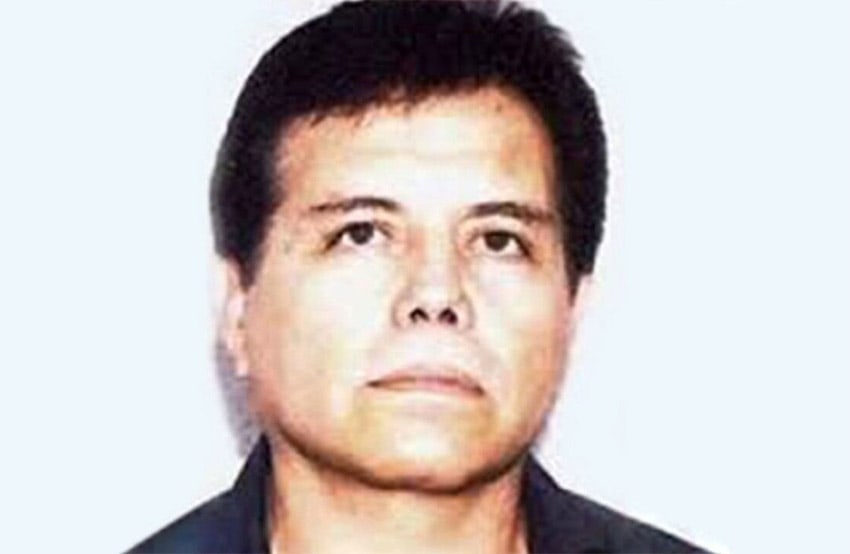
He also said that it was “completely irregular” that a person was “kidnapped via an agreement and taken to the United States.”
The FGR has indicated that it intends to lay treason charges against Joaquín Guzmán López for allegedly kidnapping Zambada and turning him in to U.S. authorities.
During lengthy remarks about the case, López Obrador also questioned whether the United States “really” negotiated the arrest of Zambada out of its desire to stem drug trafficking, especially the entry of the deadly synthetic opioid fentanyl to the United States.
“Let’s see if it was that or if it was a decision that was taken, as always, to [just] show that they’re attending to the fentanyl use problem — just for propaganda,” he said.
The relationship with the US ‘has to be good’
Despite his strong words against the U.S. government over its alleged collaboration with Joaquín Guzmán López, and his decision to pause relations with the U.S. Embassy in Mexico after Ambassador Salazar made critical remarks about the Mexican government’s judicial reform, López Obrador stressed that he is in favor of maintaining a good relationship with Mexico’s northern neighbor.
“The relationship has to be good for geopolitical reasons, because of the border — 3,180 kilometers long,” he said.
“Forty million Mexicans live and work honorably in the United States. … So we have to maintain a relationship of respect and good neighborliness with the United States,” López Obrador said.
“The only thing they have to understand is that we’re an independent country.”
